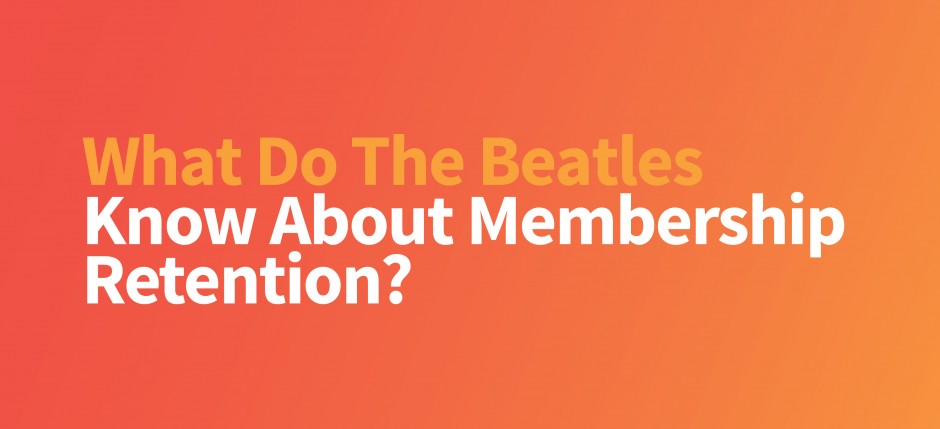What Do The Beatles Know About Member Retention?
by Erin Chatten
The Beatles had it right… all you need is love. But in this time where campuses come to life with the start of a new academic year, I think when we say, “all you need is love”, what were really thinking and saying is: “all you need is a friend”.
Think about it. This is some of the scariest few weeks that most college students experience. Especially freshmen. You walk into a new campus, new classrooms, and a new social scene –surrounded by new people – and all you are looking for are a few close friends.
I think we have forgotten that everyone is looking for the same thing as we are… a little love, a little friendship.
In some preliminary research that is currently being conducted with potential fraternity/sorority members across the country, the same message is being told time and time again. People join organizations, especially fraternity and sorority, because they want somewhere to belong on their campus. They aren’t wooed by the amazing t-shirts and banners your fraternity or sorority has on your house or around campus. They are won over already that your organization’s function is to help them find friendship and belonging.
We know from our retention studies that men and women leave their organization due to misaligned expectations and lack of connection. “Misaligned expectations” means simply “what you sold me in recruitment and what I received are not the same thing”.
Lack of connection is exactly as it sounds, if they don’t find at least one person they connect with, they will leave. In fact, men are more likely to leave their fraternity in the first semester of membership while women are more likely to leave after two years.
All they need is a friend.
Notice I didn’t say all they want is a friend, all they desire is a friend, or all they ask is for a friend. That’s because finding that friendship and finding that belonging is a necessity to retaining members.
We think that our organizations are designed in a way that everyone will naturally find their best friends and feel that belonging immediately, but it is easy for individuals to get lost in the crowd. Here are some ways we can improve our friendship making skills in our organizations with new and existing members:
- Build in intentional bonding to your existing events. Don’t just DO things together, SHARE with each other. You don’t need more events! Just build in conversation and question time in small group or one-on-one settings to get chapter members to know each other better. Stuck on questions? Try this or this.
- Use older members to make connections. Who knows your membership better than your seniors? And let’s be honest, sometimes your seniors feel out of the loop. Utilize your older members to help connect people who seem left out or in need of friends. Encourage or assign them to be the “friendship match makers” by having them make connections and inviting people to get together who usually wouldn’t.
- Shake up your existing events. No matter what it is you are getting together as a chapter to do, intentionally assign partners and groups with people who are not already good friends together. This way, nobody feels singled out when all the best friends, roommates, and big/little’s pair off and they don’t belong. Switch groups and pairings at each event so individuals can bond with as many brothers/sisters as possible over the year.
- Pay attention and care. One of the biggest indicators that someone may be getting ready to leave your organization is if they stop showing up to basic requirements such as meeting. Instead of fining them right away, reach out to them. Tell them that their presence was missed and ask if there they are okay and if there is any reason they haven’t been attending.
- Practice sending intentional compliments at least once a month. At meetings or as a monthly reminder, encourage members to send an intentional compliment to someone they want to get to know better. An intentional compliment uses an affirming adjective to compliment an individual on their personality or something they have done, not their physical features or materialistic belongings. It is followed by a general statement of praise and ends with setting time to spend time together. For example, “Rachel, I love having your calming presence around. I am really glad you are a part of this chapter. I would love to get coffee next week- are you free on Tuesday?”
If our chapters can be filled with fewer strangers and more friends, we can improve our retention and satisfaction within our organizations. It just takes a little bit of love, and some friendship.

